You can run round as far as physically possible and then you can hone your sheet metal skills by fabbing rectangular transitions.....like on my chiropractors' CMC camaro....just sayin'
You can run round as far as physically possible and then you can hone your sheet metal skills by fabbing rectangular transitions.....like on my chiropractors' CMC camaro....just sayin'
let me see if I can ask this unconfusingly...
can we get a picture from where the lower control arm mounts to the subframe out, so we can see the backside of the rotor/caliper/backing plate?
Front of the hub.
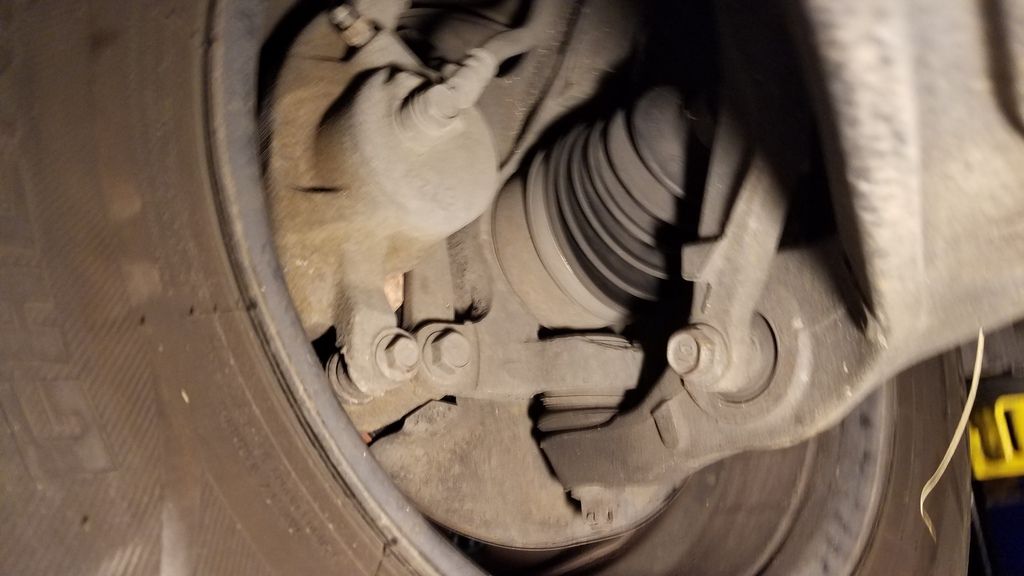
Rear of the hub.
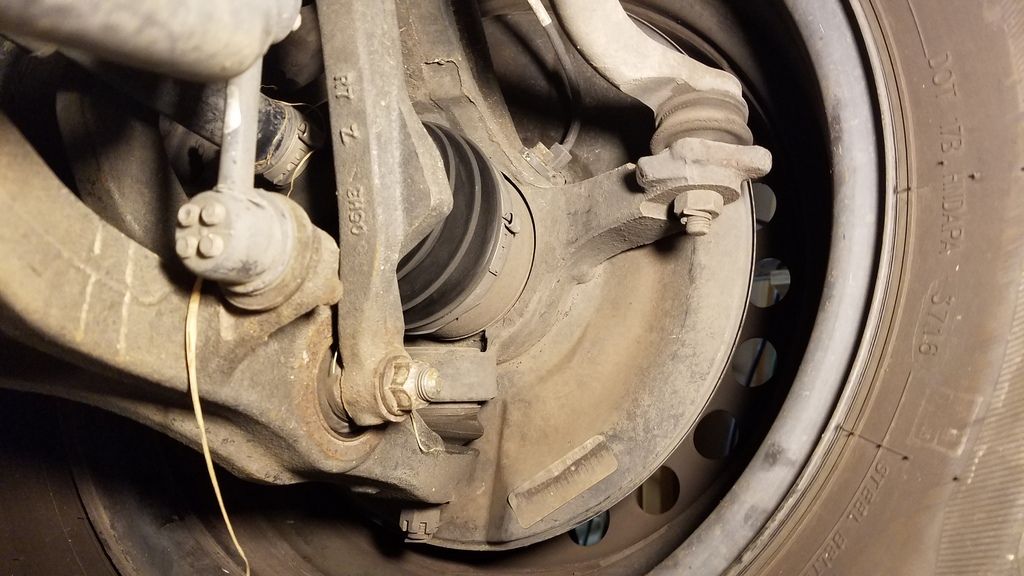
I can put a 3 inch tube (represented here by rolled up poster board) along the frame rail and down to the dust shield on the back. It's a bit of a convoluted route and I'm not 100% happy with the idea but I'm having trouble imagining anything better.
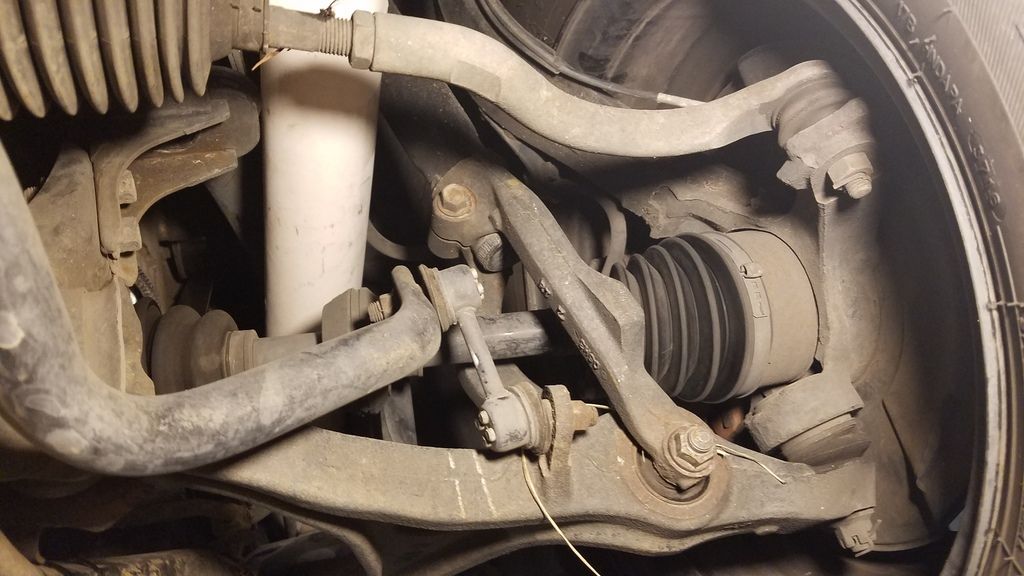
In reply to mazdeuce - Seth :
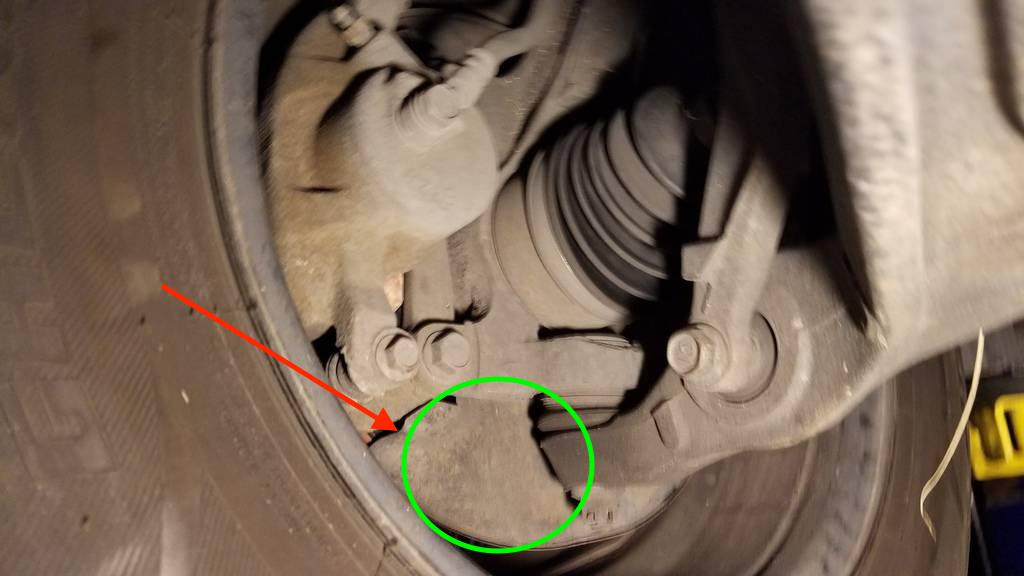
does this part of the backing plate respond to pressure? (red arrow)
how big a hose can we fit along the lower control arm and towards the green circle?
I'm not real keen on dropping air into the back side of the disk... if you look closely, you'll see the backing plate is actually shaped to encourage exit flow from there.
but, another... outside the box idea... is, coming down from the fender?
In reply to sleepyhead :
Beat me to it. Use the caliper bracket mounting bolt to hold a simple duct and the antiroll bar to support the cooling hose.
Pegasus sells 2" brake cooling hose.
Side note: does anyone have an idea of how high of temps that backing plate sees? I have an idea for this that involves polymers.
Everything I read says that you want the air to go into the center of the rotor and out the vanes if at all possible. I need to pull the dust shield and see what things look like without it. These are not big rotors.
Does it need to be a round tube all the way through? Maybe you can use an oval plastic intake horn from an cast off airbox to get through some of the tight areas.
Can you use the frame itself as the air delivery tube? Cut a hole in the plastic fascia and bumper beam and foam then another in the frame behind the front wheel and run the flex duct toward the brakes. You don’t need 100% efficiency but may need to reinforce the frame behind the front wheel where you cut the hole for the duct.
mazdeuce - Seth said:Everything I read says that you want the air to go into the center of the rotor and out the vanes if at all possible. I need to pull the dust shield and see what things look like without it. These are not big rotors.
make sure to weigh them while they're off ![]()
https://www.summitracing.com/int/parts/aaf-all42160/overview/?retaillocation=int
I used some of these to add ducts to the dust shields of my 2015 WRX. Not perfect, not all into the middle, but much better than nothing.
mazdeuce - Seth said:In reply to Professor_Brap :
I didn't have that issue, but maybe it's because the Accord looks intimidating in a rear view mirror?
Miatas and ACR Neons are definitely not. I run in a Middle/top group. Everyone has easily 200HP+ on me. It just want the damn point by when I can be on their butt in the corners.
Brakes are apart. Can't remove the dust shields with the hub in place, because of course not, but that might not really be the issue.
These are the passenger side pads. The lower one is the outside, the sliding side, the upper is the inner, the single piston side. Without any comment on my part, what do you see and how would you deal with that?
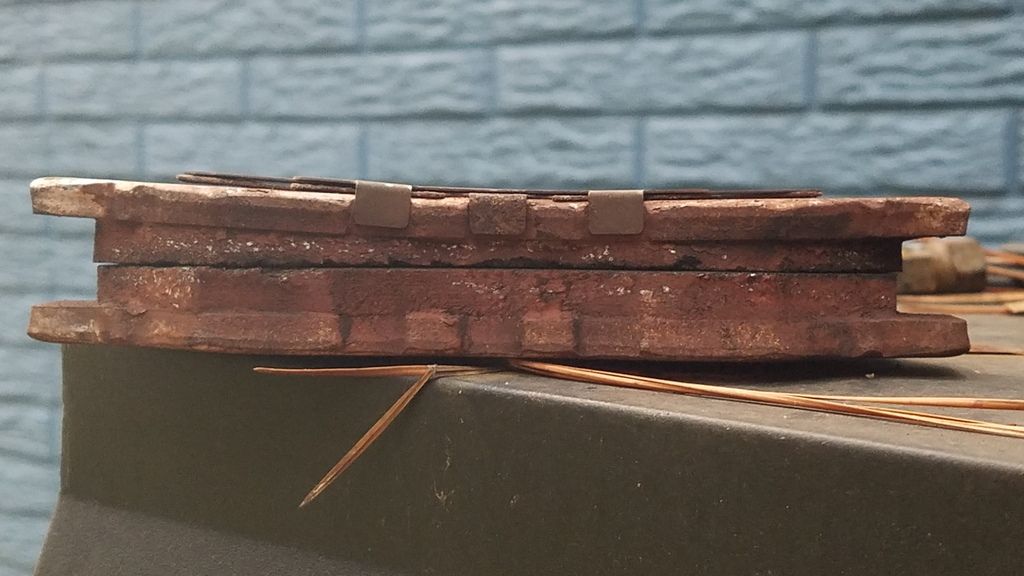
I hope this isn't taken in any negative fashion, but doesn't this seem like a lot of effort and convolution for a part of the car that worked great for a full track day?
Looks like you bent the pad a bit- stiffer backing plate?
EDIT: Or maybe the pad is hanging up on the ears that locate it, especially once it gets hot and expands. Maybe file that area for a little more clearance?
In my completely unprofessional opinion, the single piston side looks like it's pushing way to hard. Air in the line or maybe some debris? The rotors aren't warped are they?
I really don't know, but I've seen that on some of my vehicles in the past, so I'm curious as to the right answer.
badwaytolive said:I hope this isn't taken in any negative fashion, but doesn't this seem like a lot of effort and convolution for a part of the car that worked great for a full track day?
This set of pads/rotors has actually worked great for five track days and about 10k street miles.
Everything seems to slide great on the pins, no problems with the brakes at all. Is bent backing plates something that can be "cured" or is it just asking too much of the system?
it looks like the inside is "trailing" in its engagement of the rotor, and also odd that the inside is wearing faster than the outside
I recall from the TL weightloss build that the rotor cooling backs were mounted inside the hubs
Time for RL caliper research? Dunno how they'd play, balance wise with the rear drums
Inner pad wear is normally a sign of the pistons not pulling back. now i'm curious if somehow the pad was also not moving properly and the force of the piston helped bend it.... but once it was bent... it seems to have worn flat... there's no bevel like one side of the pad was catching in a weird way...
really weird to say the least. curious what the opposite side looks like...
mazdeuce - Seth said:This set of pads/rotors has actually worked great for five track days and about 10k street miles.
Ah. I would just run them then and not really worry about that wear profile, it has done plenty for you if its' survived five track days.
Teammates asked me for a picture with a straight edge on the backing plate.
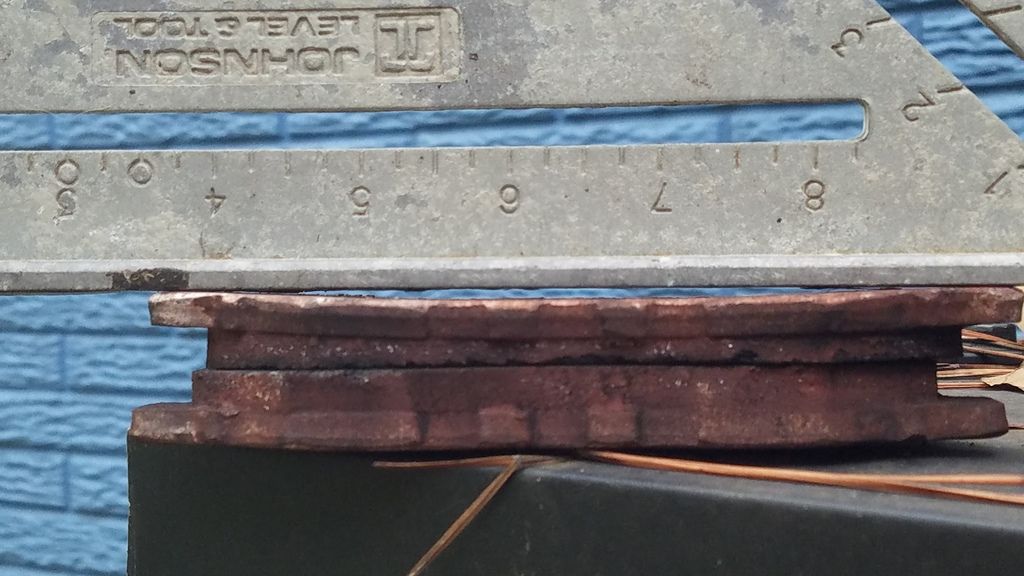
Going to go pull the other side and see if it's both sides or just a problem with this caliper.
still looks like some minor issues with the pax side compared to the drivers, dunno if it's enough to call for a rebuild... but something to keep an eye on
Been There. The ears of the bent pad are binding in the carrier because the backing plate is expanding with heat. They get hotter and bend easier as you lose more pad material.
A couple suggestions:
Make sure the SS clips in the carrier aren't deformed before reuse, or better yet get new ones with your new pads.
Keep your toasted pads and measure the ear dimensions against your new ones. If they're the same, grind a few thou off the new ones as insurance (I think some manufacturers clearance their racing pads out of the box, but don't recall which ones).
Biggest hose you can fit for venting. Unbolt or cut off the backing plate & aim the hose as close as possible to the center of the rotor. That'll help a lot.
Good Luck!
I have seen this happen from brakes getting too hot.
My thought is it is a combination of lower strength of the backing plate, more force being required by the piston due to reduced friction coefficient and ears getting stuck.
More cooling and some creative grinding with a wheel of death to give a little more room when hot should clear that up.
You'll need to log in to post.